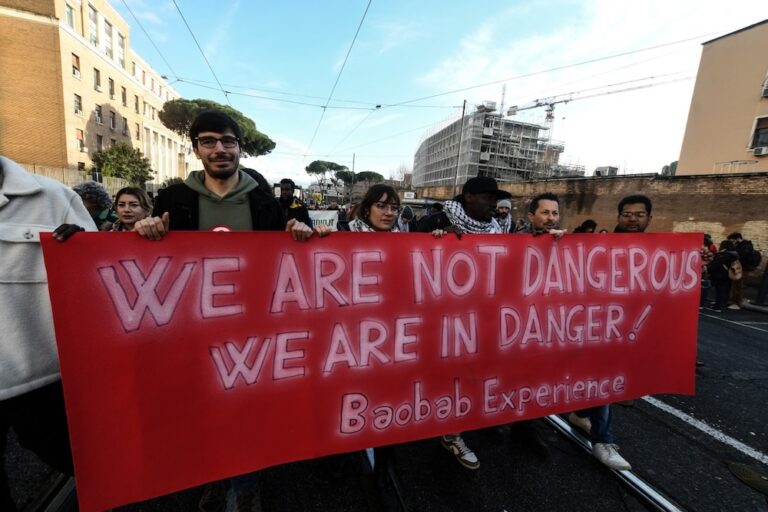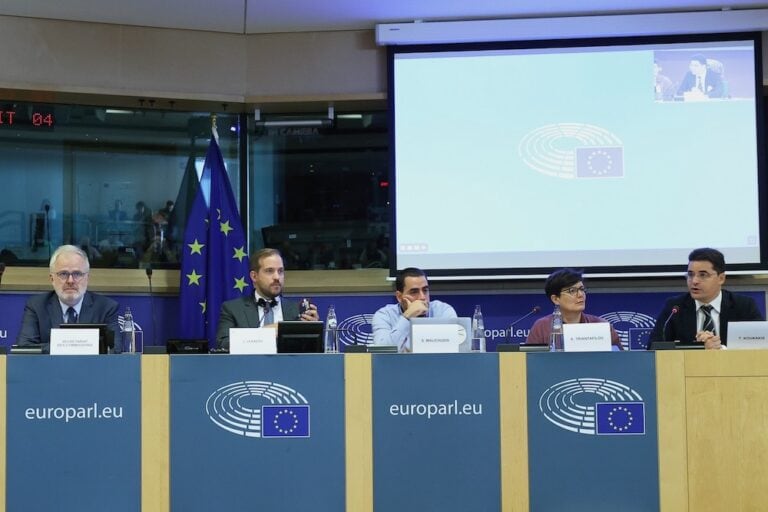(RSF/IFEX) – The following is a 23 April 2003 RSF press release: A media conflict of interest: anomaly in Italy Reporters Without Borders released a report today that looks at the conflicts of interest between the public office held by Prime Minister Silvio Berlusconi, which includes a major say over the state-owned TV broadcaster RAI, […]
(RSF/IFEX) – The following is a 23 April 2003 RSF press release:
A media conflict of interest: anomaly in Italy
Reporters Without Borders released a report today that looks at the conflicts of interest between the public office held by Prime Minister Silvio Berlusconi, which includes a major say over the state-owned TV broadcaster RAI, and his private ownership of the Mondadori press and publishing group and the Mediaset group of three commercial TV stations.
This concentration of high public office and a privately-owned media empire in the hands of one person is unique in Europe. Many observers are alarmed at the possibility of collusion between government and news media. What are the risks for news media pluralism? Is press freedom really in danger in Italy?
The report published today, entitled “A media conflict of interest: anomaly in Italy” (available at www.rsf.org), contains the findings of an investigation carried out by Reporters Without Borders in Milan and Rome from 17 to 24 March, in the course of which the organisation talked to journalists, the editors of the leading daily newspapers and television executives.
The concentration of power in Berlusconi’s hands appears to pose less of a risk for the print media than it does for the independence of TV broadcasting. The report examines the impact on RAI’s autonomy in detail. In particular, it looks at the dismissal of RAI journalists after they were publicly criticised by Berlusconi, and at Berlusconi’s repeated meddling in RAI’s management, which has shaken the public TV broadcaster. Already weakened by an unprecedented institutional and identity crisis, RAI is starting to fall behind its Berlusconi-owned rival, Mediaset.
The debate is now raging in parliament, which has to decide on the government’s proposals for resolving the conflict of interest and the reform of broadcasting. But none of the proposals seem to offer a satisfactory solution to this Italian anomaly.
At the end of the report, Reporters Without Borders makes four recommendations, urging:
– parliament to make it a priority to find an effective and appropriate solution to the prime minister’s media conflict of interest,
– Silvio Berlusconi to refrain from any form of interference in RAI’s management,
– RAI management to reinstate the dismissed journalists immediately,
– the European Commission to examine the case of Italy in its green paper on the concentration of news media in a few hands.


